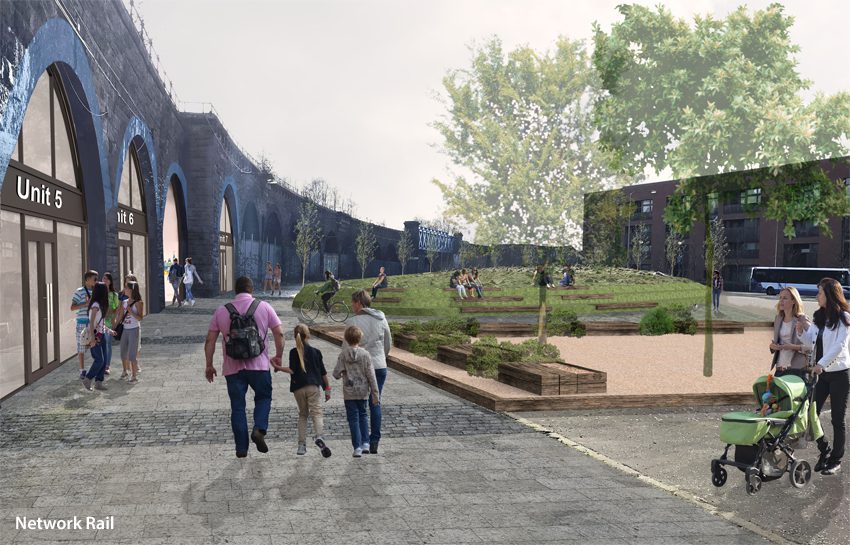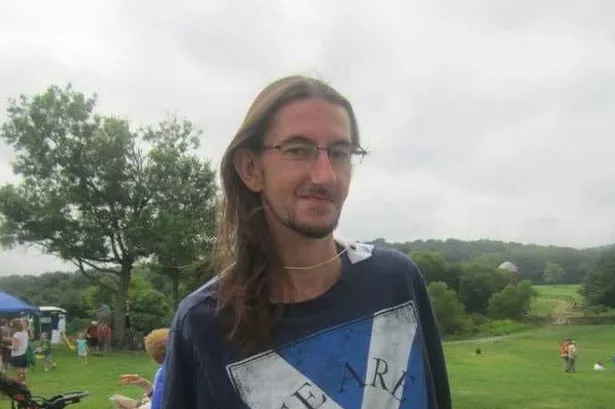Funding for three community regeneration projects in Glasgow has been secured by Glasgow City Council, it was announced today (20 May).
The three projects – the Meat Market Sheds Regeneration Project, the SWG3: Yardworks Street Arts Hub, and the Greater Pollok Community Learning Hub – were awarded £2.64million, £500,000, and £600,000 respectively from the Scottish Government’s Regeneration Capital Grant Fund (RCGF).
The RCGF has an annual budget of £25million, and through a competitive bid process it provides financial support to projects that will help to deliver large-scale improvements to deprived areas.
The Meat Market Sheds Regeneration Project will deliver the regeneration and development of the vacant historic B-listed Bellgrove Meat Market Shed structures and Superintendent’s House, which form part of the wider site. The redevelopment will deliver flexible economic and community space for the existing local communities and will complement plans for almost 600 affordable homes in the immediate vicinity. The RCGF award will support the total project cost of £8.79million.
The SWG3: Yardworks Street Arts Hub will deliver a new street arts hub at the multi-disciplinary arts and events complex, SWG3. The Yardworks Hub will provide a purpose-designed facility that uses street arts to support social change and will link in with the communities of Partick, Yorkhill and Govan. The RCGF award will help fund this £750,000 project.
The Greater Pollok Community Learning Hub project is led by local community organisation South West Arts and Music Project (SWAMP) and will transform a property into a state-of-the-art Community Learning Hub. This will become a catalyst for community-led regeneration and a focal point for the local community to address social exclusion, inequality and disadvantage for young people. The RCGF award will support the £900,000 project cost.
Councillor Kenny McLean, City Convener for Neighbourhoods, Housing, and Public Realm at Glasgow City Council, said: “The support from the Regeneration Capital Grant Fund will allow these three very different community regeneration projects to develop and make a significant impact in their local areas. These projects will not only deliver physical and environmental improvements in these communities, but also create spaces that will offer social benefits to local people.”
Alan Benson, Director of Milnbank Housing Association, said: “The regeneration of the Bellgrove Meat Market site will create an exciting legacy for the Inner East End of Glasgow. The recent RCGF funding is crucial to making this a reality and the community-based housing providers are keen to play their part to deliver a project that will benefit local people.”
Gaz Mac, SWG3 Studio Director and co-founder of Yardworks, said: “We’re extremely grateful for this funding, which is a vital step towards increasing recognition for all street-based art forms across Scotland. We’re thrilled to be able to provide a platform where artists can not only share their experiences and produce amazing works, but grow their employment prospects in the creative industry, develop their skills, and gain confidence, which is especially important amongst those from disadvantaged backgrounds. It will also have a real impact within the local community, allowing us to continue our work with young people facing economic disadvantage, as well as working towards SWG3’s wider plans for regenerating the area.”
Peter McGowan, a Director of the SWAMP Trust, said: “This project is a much-needed resource for the local community and is the result of 25 years of hard work by local residents. There has been significant investment from the Scottish Government and Glasgow City Council for this project which will ensure the Community Learning Hub becomes a reality and a game-changer for the community of Greater Pollok.”
The council committee also noted that £200,000 funding each for two other RCGF-supported projects in the city – Govan Old, and the Milton Family and Community Centre – had been granted in March, with the funding for the former to mitigate rising costs related to Covid-19 impacts, and to deal with increased site preparation costs for the latter.











